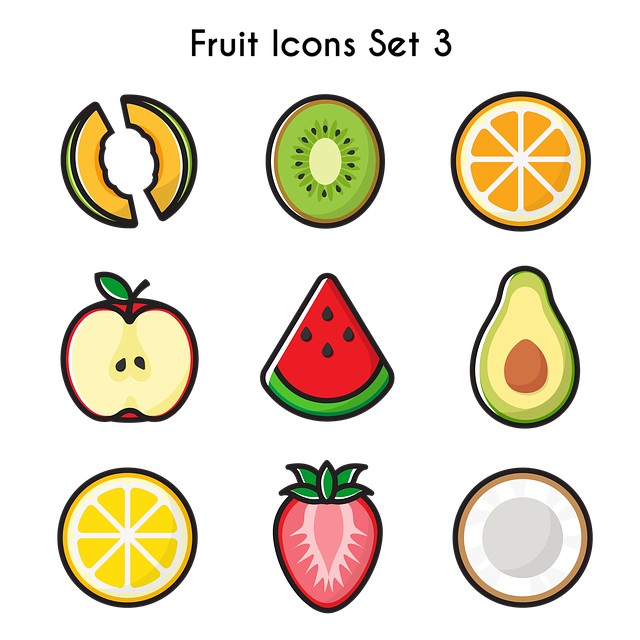- @akinyemi1972 to

- •
- 2Y
- •
Malay apple is presumed to be a native of Malaysia in southeast Asia. It is commonly cultivated from Java to the Philippines and Vietnam. It is called Malay apple in Malaysia, Jamaican apple in Jamaica and Bell apple in Nigeria.
Today, the Malay apple is cultivated in other parts of central America, including Belize, El Salvador and Costa Rica, and much more frequently in parks and gardens in Venezuela.
In Nigeria, it was introduced over fifty (50) years ago from research findings. As a tropical apple tree, it requires ample humidity, high rainfall, and no frost (cold condition). It grows quite well in many parts of Nigeria. Once these basic conditions have been met, the Malay apple trees need little else to thrive.
It can be planted in homes, parks, gardens and established as apple plantation for commercial purposes. The Malay apple tree starts producing apples three (3) years after planting, while the temperate apple tree produces apples from the sixth year after planting.
It produces apples two or three times per tree per year. It is prolific producing about 1,000 apples per tree per harvest as it grows older, that is about 2,000 apples per tree per year. The average yield is 21 - 85 kg per tree.
Malay apple tree grows vigorously on a range of soil types from sand to heavy clay. It tolerates moderately acid soil, reacts unfavorably to highly alkaline situations.
Malay apple. It is an amazing tropical apple type. It is majorly of three colours - red, green and cream with many varieties of each type. In Nigeria, the commonest is the red type. The green colour is scanty while the cream colour may not be readily available now. It has a sweet sour taste. It is highly medicinal and nutritious. This is established in the annals of scientific researches as contained in the scientific world Journal, health sciences and Food chemistry. The shelf life is 3 - 4 days. The apples stay between 17 - 19 days on the trees during harvest.
Malay apple seed It is a single oblate or nearly round seed. It is light brown externally, green internally. 1.6 - 2.0 cm in width. Somewhat meaty in texture. It is polyembryonic in natrue, that is more than two (2) seedlings could be raised from a single seed. It germinates readily in 2- 4 weeks. It has shown antibiotic activity and has some effects on blood pressure and respiration. It is medicinal in application. It is used to allay fever.
Harvest Each Malayapple must be carefully plucked from the tree and maintained in cool storage shortly thereafter. To remove from the tree, simply twist the apple’s stem.
Storage Malay apple does not store well under freezing form of refrigeration. The shelf life is prolonged under the chilling form of refrigeration at a specific temperature. Medicinal Uses Malayans apply a powder of the dried leaves on a cracked tongue. A preparation of the root is a remedy for itching. The root bark is useful against dysentery. The juice of the crushed leaxes is applied as a lotion and is added to baths. In Brazil, various parts of the plants are used as remedies for constipation, diabetes, coughs, headache etc. Seeded fruits, seeds, bark and leaves have shown antibiotic activity and have some effects on blood pressure and respiration.
Business Opportunities around Malay apple Farming
Malay apple is an and unique tropical apple now grown, eaten and sold in Nigeria and some tropical countries of the world. As its name suggests, Malay apple originates in the Indo - Malayan region throughout south east Asia's lowlands and forests.
A delight to the eye in every respect, the Malay apple tree is much admired for the beauty of its flowers and its colourful, glistering fruits. Today in Nigeria, it is in many states of the country that is the trees.
Malay apple is the biggest apple fruit in the world. It has the highest juice content or moisture of between 90.3 to 91.6g, it comes in three (3) distinct colours and shapes. The colours are red, green and white. The shapes are oblong, obovoid and bell. It is appreciated in Nigeria for its unique sweet sour taste by some people. Malay apple is loved by children and the red variety is the commonest in Nigeria for now.
It is highly nutritious and medicinal in nature.\. and this is evident in the nutrient composition and a study published in the Scientific World Journal, Food Chemistry and Puerto Rico Health Sciences Journal. The scientific name is Syzygium malaccense. It is another wonder of the world.
It is strictly tropical. It is intolerant of frost or cold. It prefers year round rainfall, but can tolerate seasonal rain as long as there is no extended dry period. Trees grown in areas with a seasonal dry period need to be irrigated during drought.
Malay apple trees are planted in homes, gardens and on the farms in Nigeria. The tree is prolific producing about two thousand (2,000) apples per tree per harxest and having two ot three harvest per annum when fully established.
Malay apple has wonderful health benefits. The flesh of the apple contains epicatechin that contributes greatly to lowering high blood presssure. It detoxifies the body. It contains water, vitamins and minerals that serve as detoxifiers .
Rich in fibre, so it helps in resolving constipation. It helps in hydrating the body because of its high water content. It contain vitamin A for a clearer and sharper vision. Vitamin C and other minerals present prevent skin cancer.
. . In Malaysia, the powder from the dried leaves is reportedly used on a cracked tongue, a preparation of the root is a remedy for itching and given to alleviate swelling.
In Cambodia, the roots, leaves and seeds are used to allay fever. In Brazil, various parts of the Malay apple tree are used as remedies for constipation, diabetes, coughs, headache, catarrh, and other ailments. Numerous other uses are reported over the range of the species.
The ripe Malay apple is edible and eaten raw. The skin is thin and the flesh is crisp and white. The slightly unripe apples are used for making jelly and pickles. It is processed into red and white table wines. You can create sweet jams and preserves from the ripe apples.
You can chop raw pieces of the apple for use in fruit salad and chop into fine pieces and add to salsa recipes. The young leaves and shoots before turning green in colour are consumed raw with rice or cooked and eaten as greens.
Brief Introduction
I am Gbenga Akinyemi, a graduate of Crop Production from the Federal College of Agriculture, Ondo state, Nigeria, West Africa. I was at the Nigerian Institute for Olilpalm Research, (NIFOR) Edo state, Plant BreedingDivision in 2002 for the one year mandatory National Youth Service Corps Programme (NYSC)
I taught Agricultural science at a private secondary school in Lagos and worked as a Farm Manager at a catfish and Oilpalm production farm between 2003 to 2006.
Presently pioneering Malay apple farming in Nigeria (since 2008). Thank you.
contact info :
WhatsApp : +234 915 088 7543
Mail : akinyemi1972@yahoo.com.
- @akinyemi1972 to

- •
- youtu.be
- •
- 2Y
- •

To boost local fruit production.
For the consumption of fresh apples for healthy living without the use of any chemical preservative.
The apples are highly medicinal. Various parts are used as remedies for overcoming different health challenges.
Malay apple tree produces much more apples than the temperate apple tree.
To reduce help Nigeria’s import bill on apples from South Africa, Europe and Asia.
Amazing wealth creation opportunities for the people in the areas of production, processing into valuable products for local consumption and export, information and internet marketing.
a. Sale of apples. As at 2006, it was sold for #5 each. Today, the small size is #50, the big size is #100, while the jumbo size is #150 each.
b. Sale of Malay apple seeds and Germinated seeds. As at 2010, a seed was sold for #50 each, but now, each seed is #100 each. The germinated seeds are between 3 - 5 weeks after planting at the pre - nursery stage. The cost of each germinated seed is #150.
c. Malay apple seedlings production. The seed is #100 each. It involves raising the seeds into seedlings. You will start making money from the 10th week after planting. The seedlings production can be done at home. At the backyard and gardens. A minimum of 50% returns on investment is guaranteed. There is a ready market for the sale of the seedlings especially from March to December each year.
Malay apple farm Plantation.
Akinyemi Oluwagbenga, Agronomist. Pioneer Malay apple Farmer in Nigeria (since 2008) akinyemi1972@yahoo.com 08123979645.